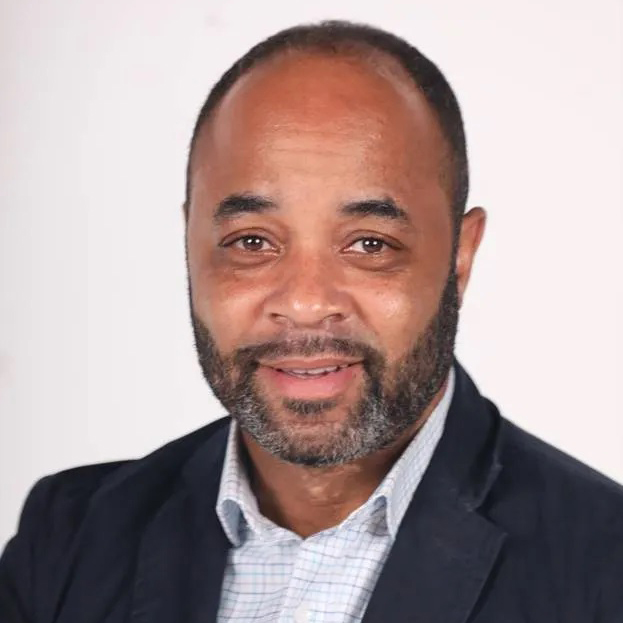Teaching is a Gift, Says ASC Cato Award Recipient Keith Burgess

By Dasia Hood
Northridge Middle School science teacher Keith Burgess was recognized this spring as an ASC Cato Excellence in Teaching Award for his gift of using creative strategies in the classroom. The award includes $1,500 and original artwork.
His journey began working with youth in Park and Recreation after graduating from Johnson C. Smith University. Burgess always felt he operated in teaching mode – whether it be teaching sports or rules – and, as the son of teachers, he knew education was innate to him and his success. So, in 2013, he got this teaching license, then a master’s in education, and started his career as an educator in 2015.
Eight years later, most of Burgess’s students come from historically excluded and marginalized communities. So, his purpose is to impact their lives and futures, helping them to see themselves as scientists and integral members of society.
“Just because [students] come from ‘this’ neighborhood, doesn’t mean [they] can’t be an asset to society,” he said.
The alchemy of impact is two-fold. Burgess’s students have taught him that he needs to help himself and his colleagues grow as they grow. His students give feedback about their positive and negative experiences in school.
“That’s opened my eyes to say, hey, not only do I need to impact the students I teach, but also the greater learning community,” he said.
Community and Collaboration
“It’s best to get the students out of the classroom when you can.”
For the past two years, he’s taken the students to Cullowhee, NC, a small town in the Blue Ridge Mountains. There, they learn through water quality testing at East LaPorte Park in the Tuckasegee River and in collaboration with other students from Catamount Lab School.
“You’re showing them that we’re all the same,” Burgess said. “You’re teaching them academically but also making social connections. You’re just as smart as them, they are just as smart as you.”
According to Burgess, the biggest challenge is addressing every student’s needs – including non-English speaking and those with learning disabilities or behavioral issues.
“I’m intentional about being reflective,” Burgess admitted. “You have to be reflective of your practice daily. What was going on? Who wasn’t all the way checked in or didn’t get enough time? Did I do well at delivering the lesson? Once you’ve thought about it, you have to take action. Now, you need to apply a new activity or strategy to help students better meet the learning objective.”
Burgess advises new teachers to make mini assessments throughout the day to see if students are getting the point. It doesn’t mean taking daily tests but rather asking questions throughout the lesson to see if students understand, like “Fist or Five” – if they get it, they raise their hand and show all five fingers, but if not, they raise their fist.
Another strategy that Burgess uses is called restorative practices. Restorative practices mean walking around, talking to students, and asking about their day to see if they are experiencing discomfort or conflict. If so, having a one-on-one conversation to help them resolve their problems with themselves, another student, or another teacher builds relationships and credibility between you and the students.
“Students recognize real. And when they recognize real, they tend to open up to you.”
Burgess is working on his Ph.D. in Urban Education at UNC Charlotte and continues working on his craft of being an educator.

